The increased use of plastics during the Covid-19 pandemic has raised concerns the crisis is leading to more plastic waste reaching the environment
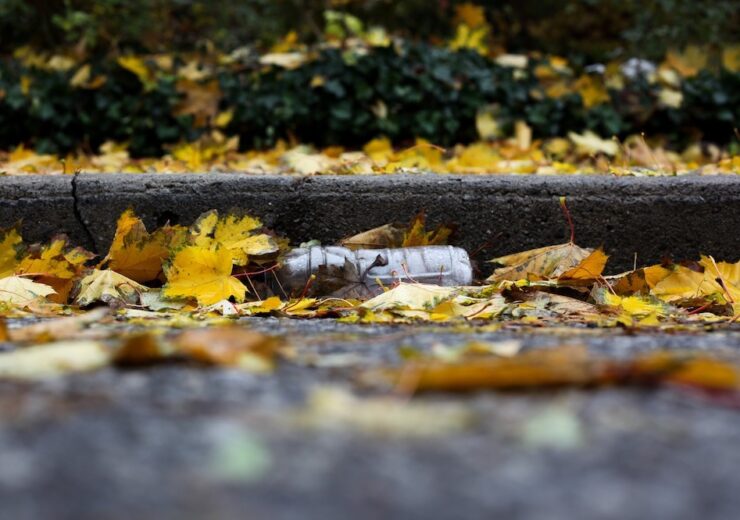
It's estimated that 91% of plastic isn't recycled (Credit: Pixabay)
Due to an increase in PPE production and hygiene concerns over reusable packaging, Covid-19 has caused a significant increase in plastic waste. Thomas Parker looks at whether or not the pandemic will impact the plastics waste agenda long term.
At the start of 2020, packaging giant DS Smith published four trends it believes will shape the industry over the coming decade.
Sustainability, through legislation and consumer pressure, is seen as one of the main areas to tackle over the next 10 years — with the use of plastic likely to be central to this.
Whether it’s the European Union’s (EU) single-use plastic ban or that consumers are making purchasing decisions around both price and environmental impact, DS Smith believes successful businesses will be those which shift towards materials and packaging solutions that are fully recyclable.
Indeed, 2020 was seen by some as the year of plastic — with a raft of solutions coming from both industry and government focusing on how to best manage and reduce use of the material.
And in the first few months of the year, this appeared to be the case.
In January, supermarket chain Tesco announced it was removing plastic wrapping from its tinned multipack products in the UK — a move designed to clear one billion pieces of plastic from its stores by the end of 2020.
Two months later, the UK government announced it is to introduce a tax on plastic packaging products containing less than 30% recycled content.
On the same day, the European Commission officially adopted the Circular Economy Action Plan — which aims to make sustainable products the norm with the EU.
University of Hull environmental professor and researcher Dr Pauline Deutz says: “Plastics was such a big story, then, of course, it disappears when the next thing comes along.
“And of course that thing is so big that everything else has vanished.”
That “thing” was Covid-19.
Due to concerns over hygiene mixed with a dramatic need for PPE, the pandemic has caused an ever-increasing demand for plastic.
But has it pushed the plastic waste agenda backwards?
The ‘Attenborough effect’: How perception of plastic waste was changing pre-Covid-19
On 10 December 2017, the penultimate episode of Sir David Attenborough’s BBC TV series Blue Planet II — titled Our Blue Planet — aired.
The programme examined the impact that plastic and microplastic pollution is having on the world’s seas, threatening the lives of marine life and affecting the planet’s ecosystem.
After the programme had aired, there was a 100% increase in online searches for “dangers of plastic in the ocean”, and a 50% rise in searches for “plastic recycling”.
Coined the “Attenborough effect”, the episode has had a lasting impact long after it was originally aired.
Research published in 2018 by retailer Waitrose found that 88% of people who watched the programme have since changed their behaviour as a result.
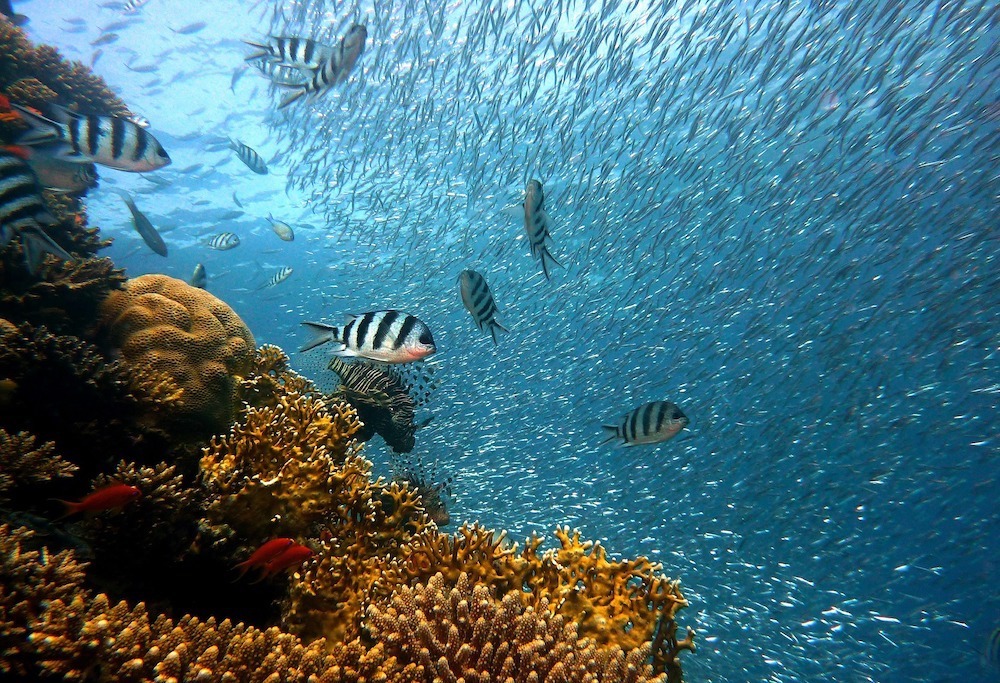
A year later, Kim Borg, a PhD student and research fellow at Monash Sustainable Development Institute’s BehaviourWorks Australia, conducted research focused on single-use plastic and how behavioural insights can help encourage plastic avoidance.
In a survey of 1000 people in the Australian state of Victoria, she found that on average 70% said they avoided these items at least half the time.
She explains: “What was really interesting was that, even though we found that their perception about how often people were avoiding was a key predictor of their own behaviour, they still thought they were much better than everybody else.
“This gives us some really interesting insights into how we can encourage people to avoid single-use plastic more often, that’s simply by sharing the news that more people are doing it than we probably realised.”
Work being done to tackle single-use plastic waste pre-Covid-19
Although public awareness of the plastics problem has grown post-Blue Planet II, governments and businesses had already been looking at how to tackle single-use plastics.
One method touted as an enabler for this is the circular economy — a system where materials are designed to be reused.
In 2013, the Ellen MacArthur Foundation charity launched its first major business-wide initiative focusing on this system called CE100.
Formed as an alliance of 100 global corporations, the network provides a pre-competitive space to learn, share knowledge, and build collaborative approaches.
Global partners of the group include Google, Unilever, and DS Smith, with its membership made up of the likes of Apple, Ikea, and Microsoft.
Two years later, the European Union (EU) adopted its Circular Economy Action Plan, which aims to establish measures that cover a product’s whole cycle.
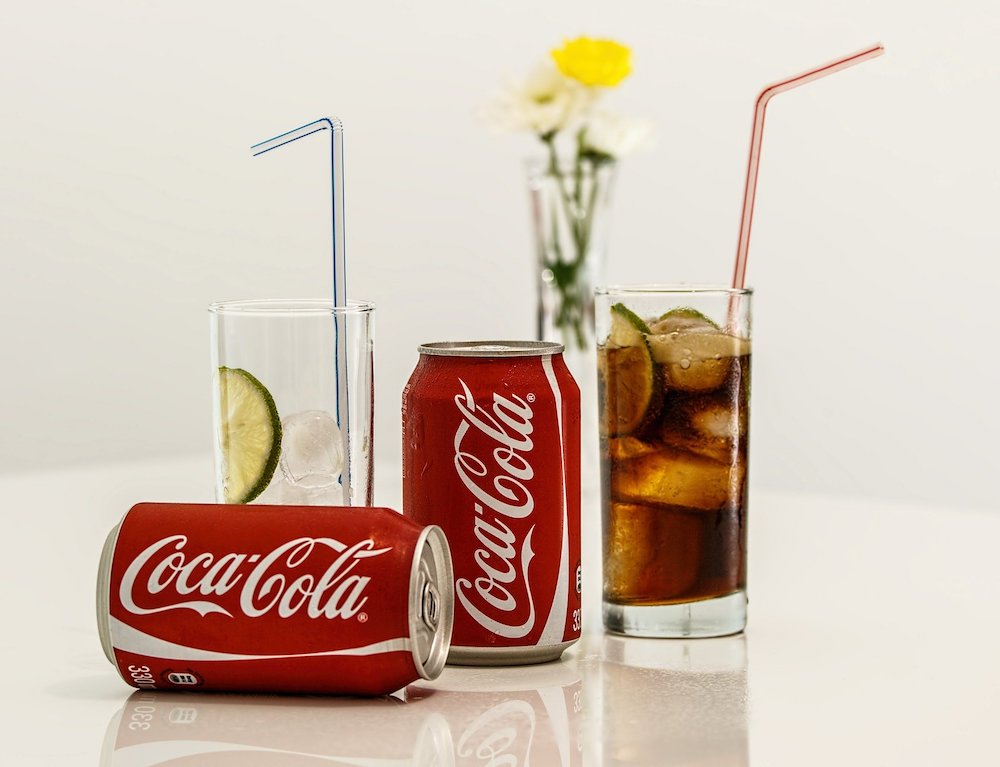
In January 2018, The Coca-Cola Company announced its World Without Waste vision, which commits the firm to collect and recycle the equivalent of 100% of its packaging by 2030.
Speaking at the time, its CEO and president James Quincey said: “The world as a packaging problem — and, like all companies, we have a responsibility to help solve it.
“Through our World Without Waste vision, we are investing in our planet and our packaging to help make this problem a thing of the past.”
Fellow consumer goods brands including Unilever and Nestle have also made commitments to address plastics in their businesses.
2018 also saw two cross-industry collaborations launched aiming to tackle the plastic waste problem.
In April, circular economy charity the Waste and Resources Action Programme (WRAP) launched the UK Plastics Pact, which aims to transform the UK’s plastic packaging system.
Initially made up of 42 retailers, manufacturers and consumer goods companies, members were at the time responsible for more than 80% of the plastic packaging on products sold through UK supermarkets.
Speaking at the time, WRAP CEO Marcu Gover said that “we have a once-in-a-lifetime opportunity to rethink and reshape the future of plastic”.
He added: “This requires a wholescale transformation of the plastics system, and can only be achieved by bringing together all links in the chain under a shared commitment to act.”
Six months later, the Ellen MacArthur Foundation launched its New Plastics Economy Global Commitment.
Aimed at eliminating plastic waste and pollution at source, it was initially signed by more than 250 organisations representing 20% of all plastic packaging produced globally.
Set up in collaboration with the United Nations Environment Programme, its founding signatories included PepsiCo, Danone, The Coca-Cola Company and Unilever.
The targets, which are reviewed every 18 months, include eliminating problematic or unnecessary plastic packaging, and to move products from single-use to reuse packaging models.
Signatories have also committed to ensuring that 100% of their plastic packaging can be easily and safely reused, recycled or composted by 2025.
National and international governments have also been pushing legislation to tackle the plastic waste problem.
In May 2019, the EU’s European Council formally adopted the Single-Use Plastics Directive, introducing new restrictions on products made from the material.
Initially proposed in 2018, the directive builds upon the EU’s existing waste legislation – setting strict rules for the top 10 most frequently found items polluting Europe’s beaches.
It also bans selected single-use plastic products where alternatives exist on the market, including cotton bud sticks, food and beverage containers made from expanded polystyrene, and all oxo-degradable plastic by 2021.
Tackling the plastics problem, according to PlasticsEurope’s director of external affairs David Carroll, has a “huge role to play” in the EU’s Green Deal, which sets out a roadmap towards a more environmentally-friendly economy in the trade bloc.

The commission will also focus on implementing measures to tackle intentionally added microplastics and any unintentional releases of plastics in products such as textiles and tyre abrasion.
Alongside this, it will develop a regulatory framework for biodegradable and bio-based plastics.
In March 2020, the UK government outlined its intention to introduce a new tax on plastic packaging.
Due to be introduced in April 2022, it will see producers and importers having to pay a fee for products that don’t contain at least 30% recycled content.
Announced during his first budget, UK Chancellor Rishi Sunak said: “To tackle the scourge of plastic waste, we will deliver our manifesto promise to introduce a new plastic packaging tax.
“From April 2022, we will charge manufacturers and importers £200 ($257) per tonne on packaging made from less than 30% recycled plastic.
“That will increase the use of recycled plastic packaging by 40%, equal to carbon savings of nearly 200,000 tonnes.”
Borg believes when legislation is introduced, it should be communicated that people are avoiding plastics more often as well.
She says: “I know that there are a lot of policies where governments are trying to do their part by banning single-use items or encouraging businesses to phase out particular items.
“And whenever those policies come into play, it would, from what my research suggests, be a great method to also share the news about the fact that more people are avoiding more, focusing on the fact that avoidance is increasing.
“Because as much as knowing that other people are avoiding helps us feel more comfortable to avoid because it’s normal, knowing that others are changing their behaviour makes it even easier.
PPE and packaging mean people are using more plastic during the Covid-19 pandemic
The plastics problem was high on the agenda, and then the pandemic hit.
At the beginning of May, researcher MarketsandMarkets estimated that the Covid-19 pandemic would result in the packaging market growing by 5.5%.
The report went on to say: “The Covid-19 crisis has shown that, since the demand from many end-use industries is growing mainly in the food and beverage segment, the use of plastic packaging will also see a significant rise during this crisis.”
The single-use plastic increase is in part down to hygiene concerns around other packaging methods, most notably reusable packaging.
Borg explains: “What I have observed in terms of businesses that are no longer accepting reusable cups or containers, there are certain governments and jurisdictions that are delaying or overturning policies related to plastic production.
“It started off as a bit of a knee jerk confusion reaction where single-use is aligned with the perception of hygiene regardless of what scientific evidence says — which is that, as long as you clean your reusable items, they’re completely safe.
“The fact businesses and government were starting to point to single-use plastic as safer would definitely have changed people’s individual risk perception around whether they should be using reusables or single-use.”
There were, according to Carroll, also “suggestions” that it was time to delay or roll back plastics policies”.
He adds: “PlasticsEurope has never signed or called for any of this, and in general the industry doesn’t see things going this way.”
Another factor contributing to the rise of disposable plastics has been due to unprecedented growth in demand for personal protective equipment (PPE).
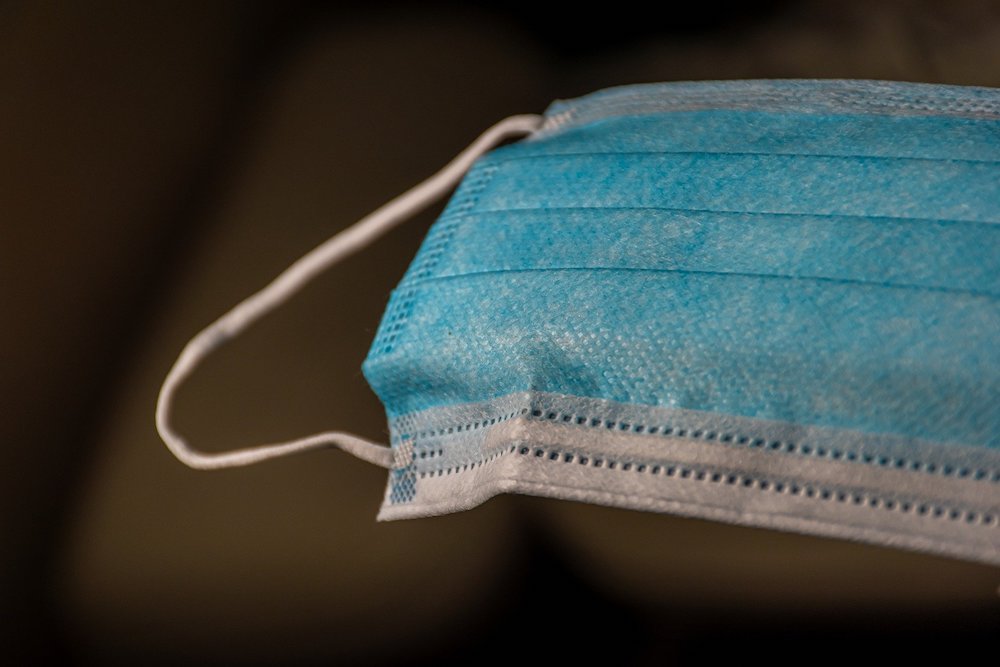
According to UNICEF, during the first quarter of 2020, the United Nations (UN) alone had delivered more than 6.4 million gloves, 1.8 million surgical masks, and one million gowns across the world.
The non-governmental organisation goes on to say that demand through to the end of the year could reach 2.2 billion surgical masks, 1.1 billion gloves, 13 million googles and 8.8 million face shields.
A large proposition of PPE items — including respirator and surgical face masks, face shields, protective gowns and gloves — are either partially or significantly made with some sort of plastic polymer.
Polypropylene can be found in respirator and surgical face masks, while protective gowns can also contain polyester or polyethylene.
And, while some PPE products can be reused, others including medical aprons should never be re-used.
It’s also difficult to recycle PPE items such as face masks and disposable gloves because they are not recyclable through conventional facilities.
Carroll believes PPE in healthcare settings “isn’t really a problem”, pointing instead to its visibility in wider public spaces.
He adds: “The waste is something that’s so visible, everybody notices it and it’s not a nice thing to see.”
Supply chain concerns caused by the pandemic have also seen priorities shift for some organisations in the industry.
Carroll explains: “PlasticsEurope has had to deal with really urgent things to make sure that plastic packaging is an industry that can continue.
“We’ve done this by making sure our members’ workers can cross borders to keep their plants up and running.”
Will Covid-19 have a long-term impact on the plastics agenda?
Despite this, Carroll doesn’t see Covid-19 “reshaping attitudes towards plastics and plastic waste”, instead describing the pandemic as “just a hiccup”.
He adds: “What I’m trying to get across is that, certainly for our industry, we’re going through quite a quick transition and we don’t want to change direction following Covid whatsoever.
“We also see it as an opportunity for people to understand the benefits and the value of plastics, while simultaneously showing that we are willing to deal with waste issues and improve recycling rates.”
Indeed the problem of plastic waste is not an insignificant part of the much-discussed “Green Recovery” from Covid-19.
In an op-ed for Devex in June, non-governmental organisation the Global Plastic Action Partnership’s director, Kristin Hughes, said: “In this new approach, governments have the opportunity — and the responsibility — to transform sustainability commitment into action, both in the short and the long term.
“Addressing plastic pollution should be a key piece of this rebuilding effort, and governments can help keep everyone on track.”
On 5 June, the intergovernmental Organisation for Economic Co-operation and Development (OECD) published its “Build Back Better” plan to develop a sustainable, resilient recovery after Covid-19.

The circular economy — a method seen by many as the best way to manage plastic waste — was referenced as a key part of the “Green Recovery”.
The OECD’s report said: “Economic recovery policies may provide an opportunity to improve resource efficiency overall, including through exploiting job creation possibilities related to the circular economy.”
It also adds that governments’ proposed recovery measures present an opportunity to provide greater circularity in the supply chain.
The pandemic has also failed to put the brakes on some single-use plastic legislation.
On 8 April, industry association the European Plastics Converters (EuPC) called for the postponement of the implementation of the EU’s Single-Use Plastics Directive “for at least an additional year” due to the pandemic.
The European Commission quickly responded by stating it had no such plans.
Speaking to Euractiv on 15 April, the European Commission’s spokesperson for environmental matters Vivian Loonela said: “The Commission’s position continues to be that deadlines in EU law have to be respected.”
She explained that, regarding the arguments raised by EuPC, “good hygiene practices should be applied to all products, including substitutes of banned single-use plastics”.
Loonela added: “Moreover, the Single-Use Plastics Directive foresees expectations for medical devices.”
Moreover, some administrations have banned or begun the process of banning single-use plastic items.
In July, the Australian state of Queensland launched a bill to ban plastic products including straws, stirrers, cutlery and plates.
If passed, the earliest date for the ban’s commencement would be 1 July 2021, giving businesses, schools and other facilities time to plan for the changes.
Queensland environment and the great barrier reef minister Leeanne Enoch said: “First our government banned single-use plastics bags, then we introduced the highly successful Containers for Change programme, and now we have taken the next step in our war plastic waste by introducing this bill.
“In March this year, we asked Queenslanders to decide the future of single-use plastic items and we received a resounding response that was very clear.
“Almost 20,000 responses were received, with 94% of submissions in favour of a ban.”
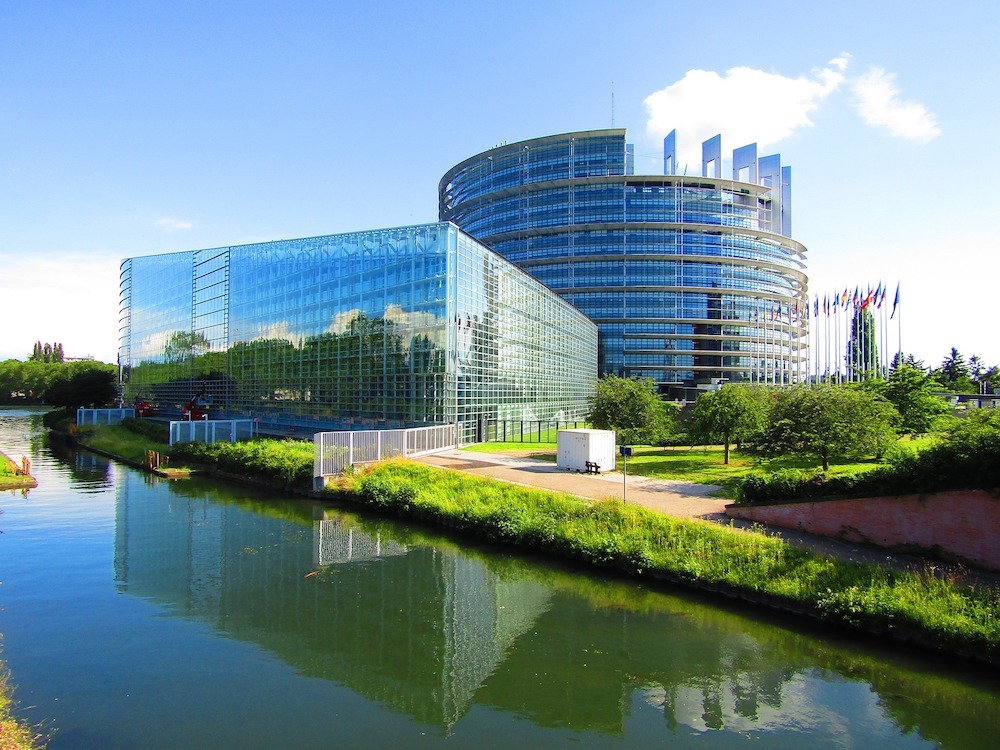
In June, more than 50 “global leaders” — including the CEOs of Amcor, Nestle and The Coca-Cola Company — pledged to “build back better” with the circular economy.
Speaking at the time, Ellen MacArthur Foundation founder Dame Ellen MacArthur said: “CEOs of some of the world’s biggest companies, policymakers, philanthropists, academics and other influential individuals have reaffirmed their commitment to building a circular economy.
“Together we can build an economy that is distributed, diverse, and inclusive.”
The statement published by the charity calls on businesses and governments around the world to join the journey towards a circular economy, invest in circular economy solutions and raise the ambition level of circular economy targets.
Throughout the pandemic, major businesses have also made further commitments to tackling plastic waste.
Computing company HP has pledged to eliminate 75% of its single-use plastic by 2025, while Amazon has eliminated all single-use plastic in its packaging across its fulfilment centres in India.
Alongside this, personal care firm L’Oreal has committed to making 100% of the plastics used in its products’ packaging from either recycled or bio-based sources.
It also appears that public perception on plastics has not changed much during the pandemic.
Borg, who published her plastic attitudes study on The Conversation, said she has received similar feedback to that from a study she had conducted on the supermarket plastic ban in Australia.
She explains: “Most people are not only supportive of the general message that we should be focusing on single-use, but they’re calling for more action.
“This tells me that we may be re-entering this phase where we now know how to control our health risks and practice better hygiene, so maybe it’s time that we’ve got to get back into some of our old habits.
“One of the other things to keep in mind is that it’s much harder to start a new behaviour than it is to restart an old behaviour.
“So if we’ve had to put certain behaviours on hold for a temporary period because of a bit of uncertainty, bringing those old behaviours back when we know a bit more information should actually be easier.”
